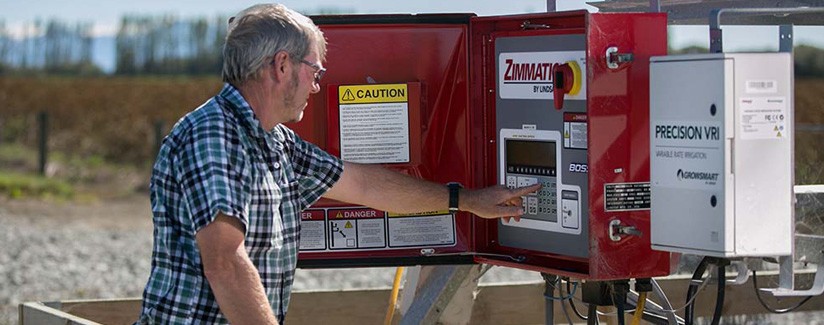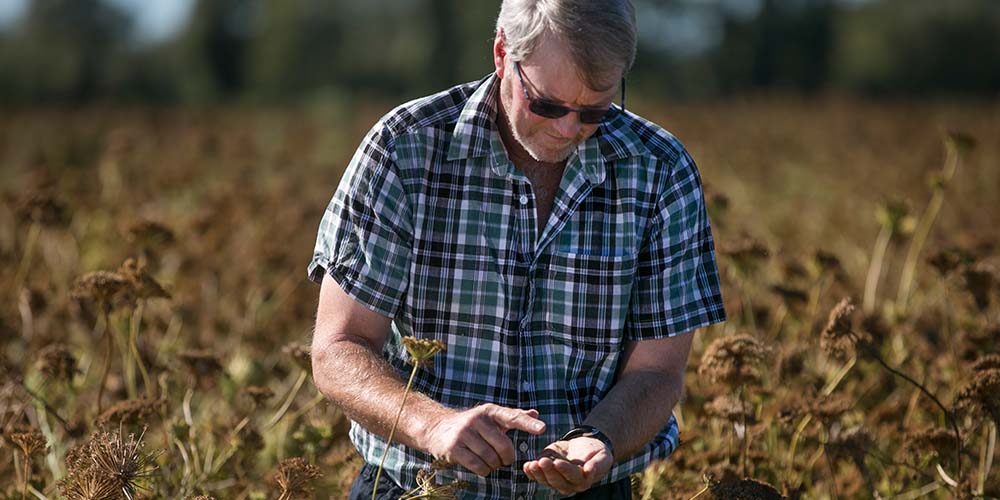Zimmatic 博客
Center Pivot Irrigation Helps New Zealand Grower Improve Sustainability
2020年2月7日

A love of the land and the ability to be his own boss led New Zealander Gary Wilson to a life of farming.
“Sure, there are long hours and the weather can be a real pain, but what motivates me is the hope we can achieve top yields each season,” he said. “And, hey, if not, there’s always next year.”
Wilson grew up on his family’s sheep and crop farm on the Canterbury Plains – leaving in the early 1980s to take advantage of educational opportunities. He and his wife Rae returned to work on the family’s 158-hectare (390-acre) block at Winslow in 1988 before moving to their own operation, Glenmorganvale Farm, in 1999.
“We grow crops ranging from carrots for seed production, to ryegrass for seed maize, radish and anything else that’s profitable,” he said.
Because his fields are flat, inland and prone to unpredictable weather, Wilson said the only way they’ve been able to maintain the operation is by getting smarter in the way they operate. They use center pivots with Zimmatic Precision Variable Rate Irrigation (VRI) technology to apply the right amount of water precisely where they need it – with a simple touch on their smartphones.

“Before we purchased the farm, it simply had border dyke flood irrigation and lateral spray irrigation with hand shift pipes,” he said. “Now, with the help of technology, we’re not necessarily reducing our water or fertilizer inputs but we’re optimizing them, so the crops we grow utilize everything that we put in – be it water, fertilizer or chemicals we spray.”
In addition to watering more accurately, Wilson said center pivot irrigation also requires less labor and lowers costs in the long run. It’s an investment, he says, in the future of farming.
“As an irrigated farmer, we’re always under the microscope, so we have to utilize our scarce resources the best way we possibly can. We’re trying to do that,” he said. “Irrigation allows us to grow the seed crops – like carrots, radish and ryegrass – that are exported to the world. Without irrigation systems, our crops simply wouldn’t be reliable – we wouldn’t get the yields.”